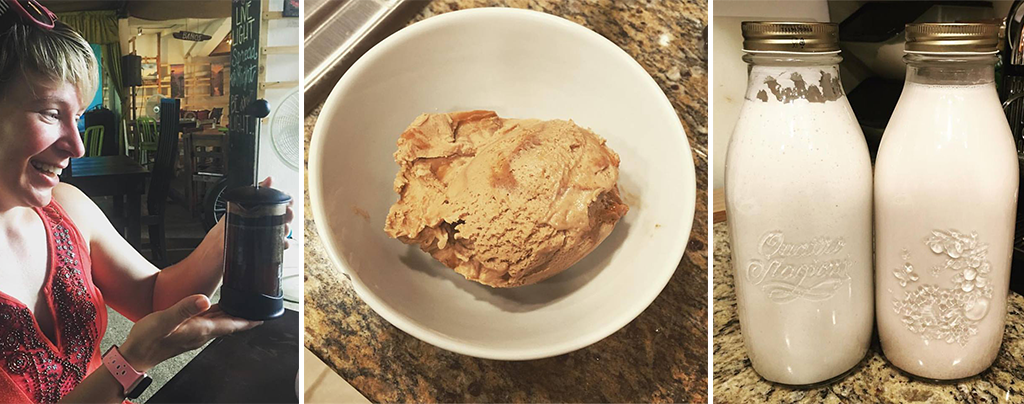Turns out, according to the test, I am sensitive to A LOT of foods – wheat, corn, soy, oats, coffee, cocoa, cane sugar and caffeine just to name a few. At first, I was stunned. I then entered into what I like to call my Stages of Food Grief.
Let’s start with denial – definitely not just a river in Egypt, folks. When I first got the report back, I thought to myself “No way! COFFEE?? Coffee would NEVER betray me. This report has to be wrong!” Then as I sat back and looked through my food journal, things really did start to make sense. I could line up the foods on my report with the symptoms I was experiencing. It was then I knew it was true, and my only course of action was to move forward and start the elimination diet as prescribed.
Next was anger. This was a fun stage. I remember distinctly standing in the frozen food section of Sprouts, ready to throw a package of frozen potatoes across the aisle because not one…single…item… was made without one of my new forbidden ingredients (sugar, apple, soy). I also found myself getting angry with those around me for enjoying foods that were now off limits. I was not a happy camper. What got me through this phase was a supportive and empathetic husband who let me be angry but also said “well, let’s focus on what you CAN have.” I started to look up creative recipes using only ingredients that I could consume. I started to look at finding recipes that fit my needs as a challenge. I dug in and mustered all the resourcefulness I could to find a way to make this work.
As my anger softened, I got a little sad. Food no longer held the pleasure it once did. It’s not that I wasn’t enjoying the foods I was making (EVERYTHING has to be made from scratch), but I had to learn in hurry that food could no longer be an instant pleasurable reward (I can no longer just grab something quick). I would have to find another way to get past any cravings I had and get comfortable sitting with uncomfortable feelings and “deprivation”. That has been an important lesson to learn, not just for food but for life.
Finally, I find myself in a place of acceptance. That is in no small part due to the fact that I feel so much better. My gut is eons happier, I have more energy and my eczema is better. Here are a few other things I’ve learned along the way:
- I really can live without caffeine.
- Cashew ice cream is the single best thing I’ve ever made. Period.
- I’m like the Macgyver of meal planning – I can take seemingly random food items and turn it into a meal!
- Maple syrup is magic – when it’s the only sweetener you can have, you get really really resourceful.
- If you want to make homemade nut milk – get a nut milk bag. SO WORTH IT!
- You can’t take canned meat through TSA, they will confiscate it!
- It’s ok and normal to feel angry or sad about change.
- Feeling good is worth my time and effort.
This post was written by Danielle Heuseveldt.


What To Eat Before & After Your Workouts
Enter your email for FREE access to the exclusive resource.
You have Successfully Subscribed!
100% privacy. No spam.